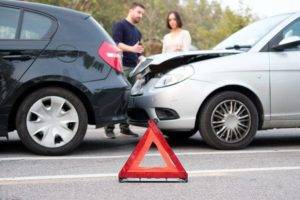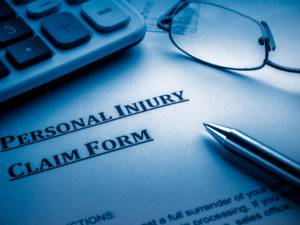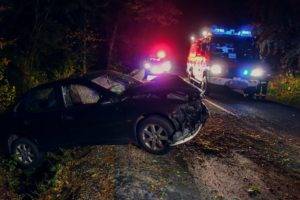First thing after an accident, you want to make sure that you and your passengers are okay. But what if you emerge unscathed? Is there no way to pursue legal damages by means of a personal injury claim?
Even without physical harm, a car accident can lead to substantial financial losses and emotional distress. At Andrew Pickett Law, we understand this and know how to help car accident victims get compensation for damages besides medical bills. Keep reading to learn more about your options in Florida.
Florida’s “At-Fault” System for Property Damage
Understanding Florida’s auto insurance laws is key. This state operates under a “no-fault” system regarding personal injury. This means that you turn to your own insurer for Personal Injury Protection (PIP) coverage, and they should cover your initial medical bills even if the other driver was at fault.
However, the same rule of fault does not apply to property damage, for which Florida is an “at-fault” state. This critical distinction means you can directly sue the at-fault driver for your property damage, and you can file a third-party claim against his or her Property Damage Liability (PDL) insurance.
Thus, you may be able to pursue compensation for:
- Vehicle damage: This covers the costs associated with repairing your damaged vehicle or, if it’s totaled, its replacement value
- Cost of rental car: While your vehicle is being repaired, the cost of a rental car can add up fast, increasing the damages owed to you
- Personal property damage: Valuables that were inside your vehicle and damaged or destroyed at the time of the collision can also be included in your claim
In Florida, generally speaking, you won’t sue the at-fault driver from the start. Rather, that party’s PDL coverage is generally meant to be your first avenue for compensation.
PDL is specifically designed to cover damage to other people’s property caused by their insured drivers. However, when this coverage is not available, you and your personal injury lawyer can pursue due compensation by other means.
Need free legal help in Florida?
We specialize in personal injury claims.

Emotional Distress and Non-Physical Damages
Even if you seem fine at first to yourself and everyone around you, a car accident can bring consequences for many years to come. It’s a traumatic event, after all.
Emotional trauma, anxiety, and post-traumatic stress are common results of car accidents, even minor ones. Thus, you have the right to pursue a claim for these non-physical damages, particularly if the emotional distress is severe and clearly linked to the incident. What matters is whether or not you can prove the emotional distress you have experienced and link it to the accident.
What You Need to Prove to File a Car Accident Claim
For your legal claim to hold its own weight, the concept of negligence must be clearly shown. To hold another driver liable, you must prove:
- Duty of care: The other driver had a legal obligation to operate his or her vehicle safely
- Breach of duty: The driver failed to uphold this duty in some way (by action or inaction)
- Causation: This breach of duty of care directly caused the accident
- Damages: The accident resulted in quantifiable losses for you
When Insurance Won’t Cover It All
Sometimes the at-fault driver’s coverage is insufficient to cover the total cost of damages or even nonexistent. When this happens, that person may be responsible for covering the remaining balance out of pocket, either by means of a settlement or lawsuit.
Meanwhile, you, as the car accident victim, have the option to pay for repairs to your vehicle through your own collision coverage. Unfortunately, this step seems easier than it may prove to be. The insurance company will make it a challenge for you.
When the insurer denies your claim outright or offers a settlement that falls short of your vehicle’s actual value or repair costs, you can:
- Negotiate: Your attorney can negotiate directly with the insurance adjuster to achieve a fair settlement out of court
- Go to small claims court: For minor damages, filing a claim in small claims court may be a viable option, often for damages below a certain monetary threshold
- Report the insurance company: If you suspect the insurer is acting in “bad faith,” you can file a complaint with the Department of Financial Services, which can investigate from there
- File a lawsuit: If the damages exceed small claims limits or if the insurance company remains uncooperative, suing the insurance company directly may become necessary
Need free legal help in Florida?
We specialize in personal injury claims.

Find Out Whether Your Case Qualifies to Be a Lawsuit
While you may not be facing medical bills, the total cost of vehicle repair or replacement, rental car costs, and your emotional distress can be significant. You have the right to seek compensation for the financial burdens you are facing.
Not hurt? No problem. The car accident attorneys of Andrew Pickett Law, PLLC, will take a good look at your case to see what can be done to pursue compensation on your behalf. Contact us to schedule a free consultation today.
Need free legal help in Florida?
We specialize in personal injury claims.






